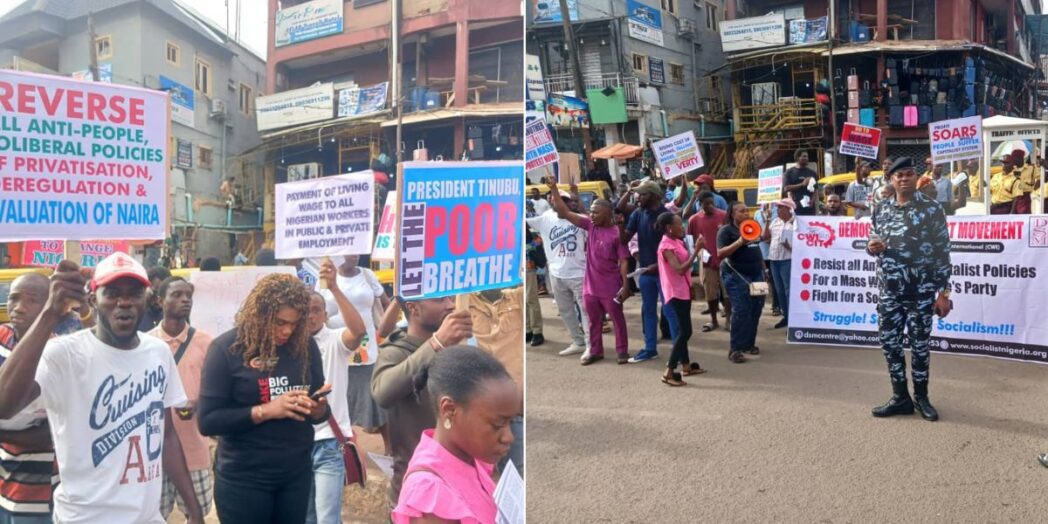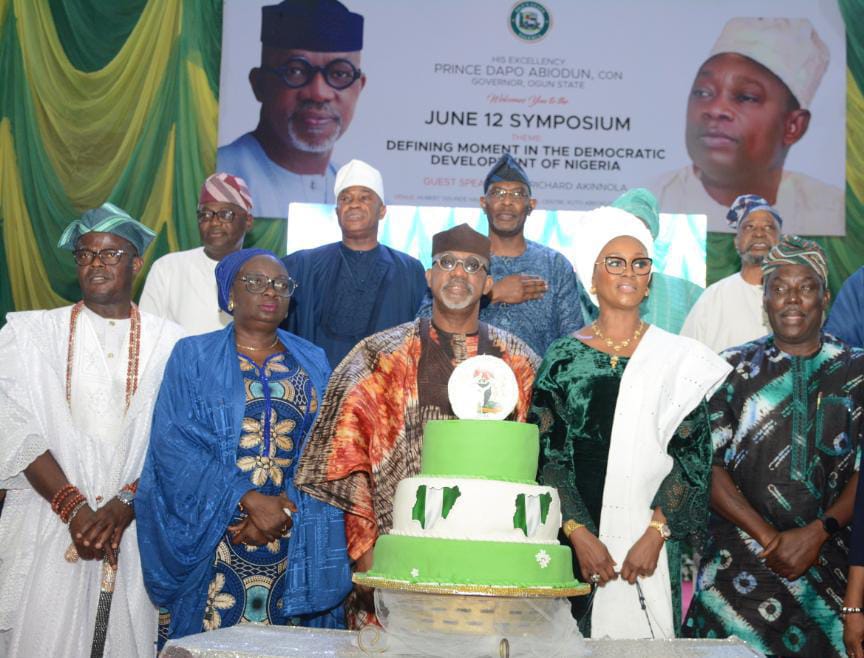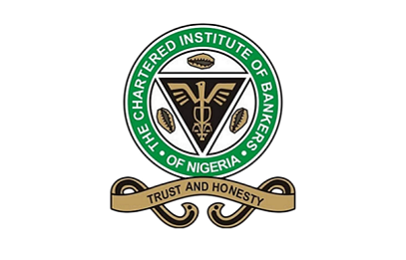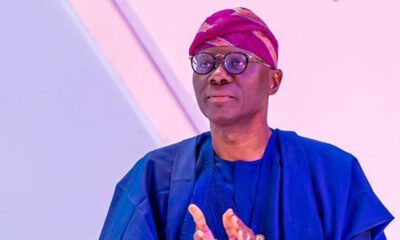Top Story
Address political interference, weak economic institutions to harness corporate governance in public, private sectors — Olusegun Aganga
By Matthew Denis
A former Minister of Finance, Olusegun Aganga has disclosed that for Nigeria to truly harness the power of corporate governance in both the private and public sectors for economic diversification and transformation, it must address certain challenges of political interference, weak mechanism in the economic Institutions and ineffective oversights in checks and balances at government establishments.
Aganga who was the Keystone Speaker at the ongoing 2023 Annual Directors Conference held in Abuja on Thursday said, “When political considerations heavily influence the decision-making process in public organisations, it can compromise the impartiality and objectivity needed for good governance.
“It starts with the process and quality of making appointments. Why must critical appointments such as heads of parastatals, board members, etc, go to party members as ‘dividends of democracy’? That is not the dividend of democracy because The dividends of democracy should be good governance.
“The appointment and promotion of individuals based on personal relationships and political party affiliations rather than on merit weaken the very institutions we need to diversify and transform the economy. We cannot eat our cake and have it. “
The Former Minister stated that there is no effective mechanism for holding economic institutions that are supposed to drive the economic transformation the country accountable that is why there is a high level of waste, leakage and corruption, and poor execution of existing diversification plans and policies.
“We have heard about oil theft for years, we know about insecurity, high levels of unemployment, poverty, inflation, low manufacturing value addition, tough macroeconomic environment. Who has ever been held accountable and how many people have been sacked? Can you imagine this happening in the private sector and the management and board will remain? No.”
Aganga reiterated that limited checks and balances on government agencies and public institutions have led to inefficiencies, misuse of public funds, poor implementation of economic plans and policies.
He said, “There is no effective oversight because of the poor quality of the board, no relevant key performance indicators (KPIs), no reward for good performance and consequences for bad performance or behavior.”
He recommended that the NCCG 2018 for the private sector has been issued and has strengthened corporate governance in the sector. But focusing on private sector corporate governance alone to drive economic diversification and transformation is recipe for failure.
“The public sector has a major role to play particularly in developing countries. It determines how high you can jump and how fast you can run. That is why it is critical for the Financial Reporting Council of Nigeria to issue the National Code of Corporate Governance (NCCG) for the public sector as soon as possible, after due consultations. Full implementation of the Nigerian Code of Corporate Governance in the public sector will have a dramatic and positive effect on our economic institutions.”
The Former Minister suggested that the National Assembly should amend the Acts which established the Ministries and their agencies to make the adoption of the code mandatory for the public sector.
According to him in addition the Acts should specify the skills, competence, and experience (number of years in the profession) required to chair or sit on the board and to be in the executive management team of an Agency.
“That was one of the strategies employed to have strong governance and effective leadership at the Sovereign Wealth Fund (Nigeria Sovereign Investment Authority) and which regulators like National Pension Commission (PENCOM) have used effectively to regulate the pension Industry which is now one of the best regulated sectors.
“Economic Institutions and Agencies must be held accountable because nations fail because institutions are weak or do not exist. Any industrial plan will fail if the relevant economic institutions are weak. Government agencies are economic institutions and the implementing arm of the Ministries and are therefore critical to any economic diversification plan.
“At a minimum, competent technocrats who have a reputation for delivering should be appointed to the boards and management of these agencies. The dividends of democracy as I said earlier should not be about sharing positions to party loyalists but should be about good governance. KPIs should be set, and a comprehensive review of their performance regularly undertaken before any reappointments.
“Both the private and public sectors need to show more commitment to environmental, social and governance (ESG) practices. Investors are beginning to demand this to invest in companies and countries. There is a need for continuous training and capacity building for corporate leaders, regulators, and stakeholders to enhance their understanding of governance principles.”
The Chairman of MTN Nigeria, Dr. Ernest Ndukwe who doubles as the Chairman of the Occasion said, “The long-term sustainability of businesses and the economy is another hallmark of good corporate governance. By focusing on long-term strategies rather than short-term gains, companies contribute to stable, enduring economic health.
“Alongside this, ethical business practices are promoted, fostering responsible decision-making and a positive impact on society. Additionally, governance encourages robust risk management practices, helping companies identify, assess, and mitigate risks. This risk preparedness is essential for preventing crises and minimising their impact on the overall economy, promoting stability and growth.”
Dr. Ndukwe stressed that Nigeria stands at a critical juncture in its economic journey, saying, “As a nation largely dependent on oil, the time has come for us to embrace economic diversification. We must expand beyond the confines of an oil industry-driven economy and explore the vast potential in various sectors such as agriculture, manufacturing, technology, and services.
“Diversification is not just a choice; it’s a necessity for sustainable growth. It reduces our vulnerability to global oil price fluctuations, creates employment opportunities across diverse fields, and fosters innovation and competitiveness on the global stage. This shift will not only fortify our economy against shocks but also contribute to equitable income distribution, supporting the journey towards a more resilient and prosperous Nigeria.
“It’s time to break free from the chains of a mono-economic structure and step into a future where our potential knows no bounds. Let us embrace this pivotal moment to diversify our economy, laying the foundation for a more stable, innovative, and prosperous future for generations to come. The time for economic diversification is now, and together, we can chart a new course towards sustainable growth and resilience.
“I urge each one of us to collaborate, exchange ideas, and foster partnerships that will not only strengthen our organisations but contribute to the overall transformation of Nigeria’s economy. Let us be the vanguards of change, steering Nigeria towards a future that is inclusive, sustainable, and prosperous for all.”
In his opening remark earlier, the President and Chairman of the Governing Council, Chartered Institute of Directors (CIoD), Alhaji Tijjani Borodo said, “in organising this Conference, our Institute intends to proffer far-reaching innovative solutions in governance which will aid and support private sector directors and top decision-makers in all Ministries, Departments, and Agencies (MDAs) of government to emplace and foster a conducive business environment that will encourage robust private sector participation in the Nigerian economy.
He stressed that the theme of this year’s conference, “Driving Nigeria’s Economic Transformation and Diversification: The Role of Corporate Governance,” highlights the crucial role that corporate governance plays in advancing our nation’s economic growth and development.
Alhaji Borodo said, “Your presence here today not only exemplifies your unwavering commitment to advancing good governance practices but also signifies your dedication to driving Nigeria’s economic development.
“The significance of your support in bringing this event to life cannot be overstated. Your generosity, expertise, and resources have been instrumental in making this conference a reality, and we are truly thankful for your unwavering commitment.
“I invite you all to actively participate, network, and share your expertise in the upcoming sessions. Let us work together to drive Nigeria’s economic transformation and diversification through the prism of corporate governance. The future of our nation is in our hands, and I believe that with our collective dedication and knowledge, we can create a New Nigeria that is prosperous, sustainable, and just.”
Top Story
June 12: Protesters defy heavy security presence, unite in Lagos, Osun, Ibadan against economic hardship, others


…Say legacy of MKO Abiola unfulfilled 31 years after
…As Police arrest five ‘Revolution Now’ protesters in Ibadan
By Sodiq Adelakun
On Democracy Day, June 12, Nigerians from various cities, including Lagos State, Osun State, and Oyo, took to the streets in protest against the nation’s economic challenges, escalating insecurity, and governance deficiencies.
Led by civil society groups and social activists, demonstrators demanded improved living standards, fair wages, and an end to police brutality.
Despite a heavy security presence and reported arrests in some areas, protesters persisted in their calls for change, invoking the spirit of the historic June 12 struggle for democracy and accountable governance.
In Lagos, protesters gathered at the Ikeja Underbridge, chanting solidarity songs and brandishing placards with messages such as ‘President Tinubu, let the poor breathe’ and ‘Payment of living wage to all Nigerian workers now.’ Notable civil society groups, including the Take It Back Movement, the Education Rights Campaign, and the Coalition for Revolution, played pivotal roles in organising the demonstrations.
The Civil Society Organisations (CSOs) in Osogbo, the capital of Osun State, joined by social activists, took to the streets to voice their grievances against the economic hardships stemming from the Federal Government’s policies.
Protesters directed their calls for action to President Bola Tinubu, urging him to address the pervasive issues of hunger, hardship, and insecurity facing the nation.
…Say legacy of MKO Abiola unfulfilled 31 years after
They emphasised that despite 31 years passing since the martyrdom of June 12 icon, late MKO Abiola, whose sacrifice was pivotal in Nigeria’s democratic journey, the promises of basic amenities and prosperity for citizens remain unfulfilled.
During the peaceful demonstration, the chairman of Osun Civil Societies Coalition, Waheed Lawal, stressed that Abiola’s electoral victory symbolised a lost opportunity to steer Nigeria towards comprehensive development and urged leaders to prioritise responsive governance.
According to him, “It is unfortunate that the manifesto of the winner of June 12, 1993 presidential election, the late MKO Abiola, which included the provision of basic amenities and mass prosperity, is still elusive 31 years after.
“Besides, the lessons and gains of June 12 appear to be missing in the corridors of power at all levels.
“Nigeria’s leaders appear to have learnt nothing and forgotten everything. Unfortunately, decades of bad governance by the unpatriotic and self-centred elite, military and civilian leadership that cut across all tribes and religions have produced exploitation, oppression, poverty, misery, injustice, insecurity, banditry, violence and death as being experienced by the masses across the country.”
Mr Lawal lamented that Nigerians were going through worsening economic hardship that is creating more poverty and deprivation.
He stressed that the administration of Mr Tinubu, through its World Bank and IMF teleguided economic policies, has continued to unleash hardship on Nigerians.
“The removal of subsidy, increment in electricity tariff and devaluation of Naira have cast a shadow over the economic stability of Nigeria.
“This is hampering productivity and killing Small and Medium Scale Enterprises (SMSE), taking away the purchasing power of the Nigerian people, creating hunger and starvation, while prices of foodstuffs and essential commodities are skyrocketing.”
In his remark, the chairman of the Committee for the Defence of Human Rights (CDHR), Osun State chapter, Emmanuel Olowu, called on the Federal Government to declare a state of emergency in agriculture, stressing that without such a step, the nation’s economy will remain in the doldrum.
…Police arrest five ‘Revolution Now’ protesters in Ibadan
Meanwhile, five persons wearing ‘Revolution Now’ jackets were apprehended by officers of the Nigeria Police Force at Mokola Roundabout.
The arrests occurred during a peaceful demonstration organised by ‘Take It Back Movements’ in collaboration with Concerned Nigerians, an advocacy and human rights group.
The protesters had convened to voice their grievances on various issues plaguing the nation, including economic hardship, insecurity, police brutality, and attacks on press freedom.
Clad in black T-shirts and jeans, the demonstrators displayed banners and placards bearing messages such as ‘We are hungry’ and ‘Justice cannot be silenced.’
At around 9:30 a.m., police operatives, led by Oyo State Commissioner of Police, Adebola Hamzat, intervened and forcibly detained the protesters into a white Hilux bus.
Despite the heavy police presence, including Hilux buses and an armoured tank, the arrests were made amidst the ongoing protest.
Commissioner Hamzat, visibly displeased, chastised his officers for allowing the protest to continue despite prior warnings and public statements against such gatherings.
The arrests come amid anticipation of potential mass protests across Ibadan on June 12, prompting an increased deployment of police personnel throughout the city.
Top Story
June 12: Abiodun commutes death sentences for 45 inmates, pardons 41 others


…Military rule, not an option — Richard Akinnola
Ogun State Governor, Prince Dapo Abiodun has commuted the death sentence of 45 condemned prisoners to prison terms.
He also granted pardon to 41 other inmates serving in different Correctional Centres across the state.
Speaking at the 2024 Democracy Day, held at the June 12 Cultural Centre, Kuto, Abeokuta, Prince Abiodun said the decision was in exercising his prerogative of mercy as the governor of the state.
He said, “Government has a duty to uphold democratic values by consistently applying principles of mercy, justice, and the rule of law. In this vein, the Nigerian Constitution empowers me to exercise a prerogative of mercy to anyone convicted of an offense in Ogun State.
“Having received the guidance of the Ogun State Advisory Council on the Prerogative of Mercy, I have signed the appropriate warrants ordering the release of 41 convicts currently imprisoned across different correctional facilities in Ogun State. I have also signed warrants converting the death sentences of 45 inmates to prison sentences.
“This gesture signals a break from past grievances and a move towards a more inclusive and compassionate society where merciful second chances are granted to deserving offenders.
“All convicts who have received this gesture have shown remorse for their crimes, acquired skills and certifications in prison, with several of them receiving university degrees from the National Open University of Nigeria. They have also demonstrated verified good conduct during their imprisonment.”
He said the celebration holds immense significance as it marks the triumph of democracy, the power of the people, and the pursuit of justice and freedom, observing that the history of Nigeria’s democracy is one of struggle and perseverance.
“June 12, 1993, stands as a watershed moment in this journey. On that particular day, Nigerians transcended differences of tribe, gender, and even the unique joint Muslim-Muslim ticket to speak unanimously through the ballot.
“They elected the late Chief Moshood Kasimawo Olawale Abiola and Babagana Kingibe of the defunct Social Democratic Party (SDP) as President and Vice-President, respectively.
”Although the election was globally acclaimed as the freest and fairest in Nigeria’s history, the military annulled its results, dashing the hopes raised by this democratic exercise.
“That election remains a pivotal moment in our country’s democratic history. It has become the benchmark against which the successes of subsequent elections are measured. For all its import, it reminds us of the power of unity, resilience, and the collective determination to uphold the principles of democracy.
“It is a testament to the strength and resilience of the Nigerian people, who have shown unwavering commitment to democracy and the belief in a better future,” the governor added.
He said the late Chief M.K.O. Abiola stands as one of the finest trailblazers from Ogun State just as his courage and unwavering commitment to democratic ideals remain an inspiration to the people adding that his campaign slogan, “Hope ’93,” was a national reawakening rooted in faith and the limitless ability of Nigerians to face their challenges and solve the problems of nation-building.
While noting that the celebration signifies the commitment to continue the journey towards a better Nigeria, building on the sacrifices made by Chief MKO Abiola and countless others who fought for democracy and paid the ultimate price, Prince Abiodun said the courage and unwavering commitment to democratic ideals serve as a reminder of the power of the people and the importance of upholding the principles of justice, freedom, and equality laid by our forefathers.
In a lecture titled: “June 12: Defining Moment in the Democratic Development of Nigeria,” the guest lecturer, Mr. Richard Akinnola, while giving a background to what led to the crisis, chided the nation’s judiciary for being a tool in the hands of the military government to annul the June 12 elections.
He condemned those who have been calling for the return of the military as the result of the hardship in the country.
“In fact, June 12 stands as a defining moment and a watershed in our quest for democracy. That is why we should be very careful. Some people who did not experience what we went through are not subtly calling for the military. We must say no, never do we call for the military again. Whatever the challenges we are having, let’s fight, let us argue, let us disagree, let us abuse each other, but never should we be tempted to invite the military,” he advised.
Akinnola who described the June 12 elections as the best in the history of the nation, noting that the aftermath of the annulment led to killings of pro-democracy activists just as it ushered in mutual mistrust among the citizens.
The guest lecturer said for democracy to thrive in the country, Nigerians must keep their leaders on their toes, saying though it is necessary to celebrate the day, people should not forget those who sacrificed their lives for the democracy being enjoyed in the country now.
In his goodwill message, a pro-democracy activist and former Commissioner for Information and Strategy in Ogun State, Dr. Niran Malaolu, eulogied Chief Abiola for paying the supreme prize for the nation to experience democracy, noting that several Nigerians also suffered in the course of returning the country to democratic rule.
In his welcome address, the Deputy Chief of Staff (DCOS) to the governor, Dr. Toyin Taiwo, said the celebration symbolises the collective will of Nigerians to choose their leaders in a free and fair elections as witnessed on June 12 1993, just as it demonstrated the power of the people in bringing about change.
Top Story
CIBN dispels fears, assures public of banking system’s stability


By Opeyemi Abdulsalam
The Chartered Institute of Bankers of Nigeria (CIBN) has moved to calm fears and reassure the public of the stability of the Nigerian banking system.
In a statement by Chairman of CIBN, Prof. Pius Deji Olanrewaju, the Institute dismissed rumors of a mass revocation of bank licenses.
The statement describes the information as false and misleading.
The CIBN emphasised that the banking system is built on strong foundations, with a robust regulatory framework and rigorous supervision in place to protect stakeholders’ interests and maintain financial stability.
The Institute urged the public to continue conducting their banking transactions with confidence, assuring that banks are complying with the Central Bank of Nigeria’s (CBN) directive to recapitalise and enhance their capital base.
“The CIBN, as the professional body for banks and bankers in Nigeria, reaffirmed its commitment to promoting best practices and ensuring the banking sector’s resilience and soundness. The public is advised to remain calm and confident in the banking system’s ability to withstand economic shocks and perform its financial intermediation roles effectively,” he said.










